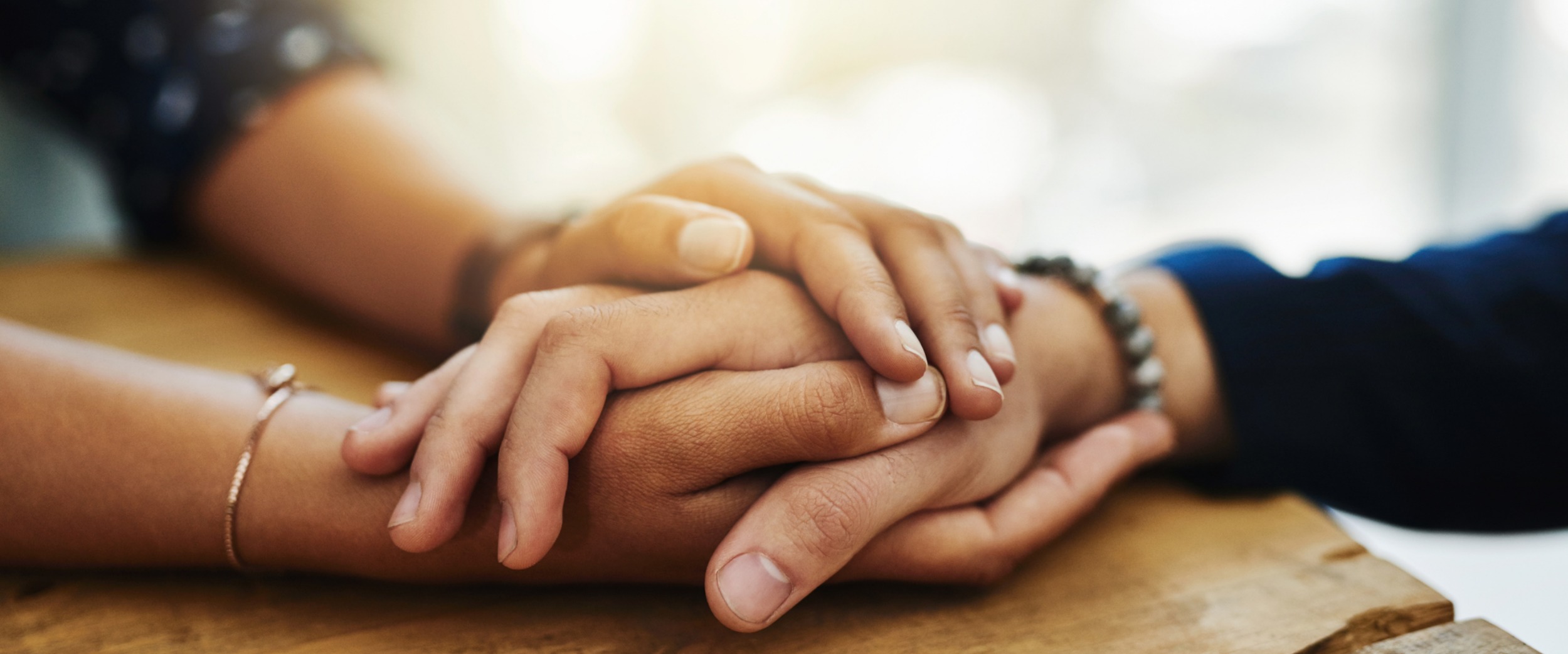By: Marg Cooke, M.S.W.
Life is about change and every change brings loss with it. Whenever we lose something or someone that we value, we grieve. We grieve for the past – for how things were—and we may not be able to imagine our future. Although it may not be welcome, grief can help us to find ways to live with -- and even grow from -- our losses.
Understanding your grief
If you have breast cancer yourself or know someone who’s living with it, you will be experiencing losses and grieving—maybe without realizing it. Understanding the particular meaning of your loss can help you (and others) to better understand and cope with your grief.
Loss is multi-layered. Each loss creates other losses, some of which may be harder to recognize and acknowledge. The table below includes some examples of different kinds of loss. You may relate to some and not to others; and you may be facing other losses in addition to these.
|
If you’ve been diagnosed with breast cancer |
If you’re a family member or close friend |
|
Loss of identity (e.g., as ‘healthy’; ‘independent’; ‘sexual’): Who am I now? |
Relationship changes (e.g., losing a team or work mate) |
|
Loss of social network (e.g., feeling isolated, ‘different’, or lonely) |
Role changes (e.g., providing rather than receiving care) |
|
Loss of work and financial independence |
Changes in shared responsibilities (e.g., taking on more of the parenting, assuming financial obligations) |
Grieving the future
In addition to grieving the losses and changes that are occurring now, you may also be grieving what you know or think may happen in the future. This is called anticipatory grief and can begin even before a diagnosis has been made. For example, you may just have had a feeling that something wasn’t ‘right’ and begun to imagine what that might mean for you.
As a person diagnosed with breast cancer, you may have new waves of grief while you’re in treatment. You may wonder if you’ll ever be ‘well’ or ‘normal’ again. If your treatment has ended and you’ve been told that you’re cancer free, you may feel the loss of never again being the same or feeling certain about your future. You may wonder, “Am I cured?” If you’ve been told that your cancer is continuing to progress and further treatments aren’t likely to help, your grief may deepen as you confront thoughts about your death and what that will mean for you and those around you.
As a family member or friend of someone with advanced breast cancer, you may also experience anticipatory grief. You may share some of the other person’s feelings of grief but you’ll also have your own losses to face. For example, if you’re seeing changes in the person’s personality or mental abilities, you may recognize that you’re about to lose a trusted companion. If there are changes in the person’s mobility, your future is likely to be a ‘new normal’ in which shared walks are no longer possible and outings become more difficult. As you adjust to such changes, you might also begin to grieve the possibility of a life without this person.
Grief isn’t just sadness and tears
Grief often brings a deep sadness, and crying is a natural way to express that emotion. However, grief can also bring other feelings, such as anger, fear, regret, or relief. The most important thing is to know that all of these are normal and to be expected, and then to let yourself feel what you feel without judging or criticizing yourself.
Along with these feelings, you may notice that grief also affects your thinking, behaviour, and physical well-being. For example, there may be changes in your eating or sleeping habits; or you may often sigh, or feel tired or restless. You may notice that you’re more forgetful of appointments or conversations, or have trouble concentrating when reading a book or watching TV; and you may be more easily irritated than usual.
Grief takes a lot of time and energy. You may not feel up to socializing or continuing with your regular activities but it’s important to not become socially isolated. Think about which people or activities are the most helpful to you and try to maintain those connections. It’s okay to take a break from some people; you may wish to re-connect with them later, when you have more energy.
Are you grieving the right way?
You may have read or heard things about grief that have made you wonder if you’re grieving the right way. The truth is that there are no fixed steps or stages and no ‘right’ way. What works best for someone else may not work at all for you. You may grieve mostly by thinking, problem-solving, and doing tasks, or you may do a lot of crying and sharing your feelings. Most likely, you’ll do some of both.
At times when your feelings are very intense, you may even wonder if you’re going crazy. This may be especially so if you get caught ‘off guard’. Events, places, people, sounds, smells, and objects, especially when unexpected, can trigger your grief. This is normal. Your grief will have its own ups and downs, and its own timing; and you’re likely to have some tough moments or days along with better ones. In those difficult times, remember that your grief is not linear or always moving forward; ‘backward’ steps are just part of the journey. Be as patient, kind, and gentle with yourself as you can.
What may help
It doesn’t matter how you grieve; what matters is that you work with your grief so that you find new ways of being with the changes you’re experiencing. You may not want to go on this journey of grief at all; or you may want it to be over as soon as possible. You may feel stuck or uncomfortable with a feeling of being ‘in-between’.
A big part of working with your grief is figuring out what is and isn’t helpful to you. Some people benefit from joining a support group where they can share common feelings, thoughts, and stories with others. If this doesn’t feel as though it would be a good fit for you, consider activities such as walking (alone or with a friend), creating a memory book, journaling, or gardening. Many people help themselves by reading, surfing the net, or watching videos to learn more about their grief.
Your grief will take the time it needs. Other people may try to hurry you. You may take a few steps forward and then stop or step back. It can be scary to not know where exactly you’ll end up. Take the time you need, trust yourself, and ask for support when you need it.
Resources
The Canadian Virtual Hospice:
- MyGrief.ca
- KidsGrief.ca
- Grief Work
- All In This Together: Coping With Advanced Illness and Dying as a Family
Grief and bereavement – Canadian Cancer Society: http://www.cancer.ca/en/cancer-information/living-with-cancer/your-emotions-and-cancer/grief-and-cancer/?region=on
Victoria Hospice Bereavement Services – “Useful Brochures – Bereavement Information”: https://victoriahospice.org/resources/helpful-resources/
Rethink Breast Cancer – “Grief Part 1”: https://rethinkbreastcancer.com/the-psychosocial-grief-part-1/
Grief after mastectomy: https://breastcancernow.org/about-us/news-personal-stories/i-grieved-my-body-after-my-mastectomy
Young Survival Coalition – “Young adults and breast cancer”: https://blog.youngsurvival.org/4-things-know-grief-breast-cancer-can-help/
Canadian Hospice Palliative Care Association – “Bereavement Resources”: https://www.chpca.net/news-and-events/bereavementday/bereavementdayresource.aspx







